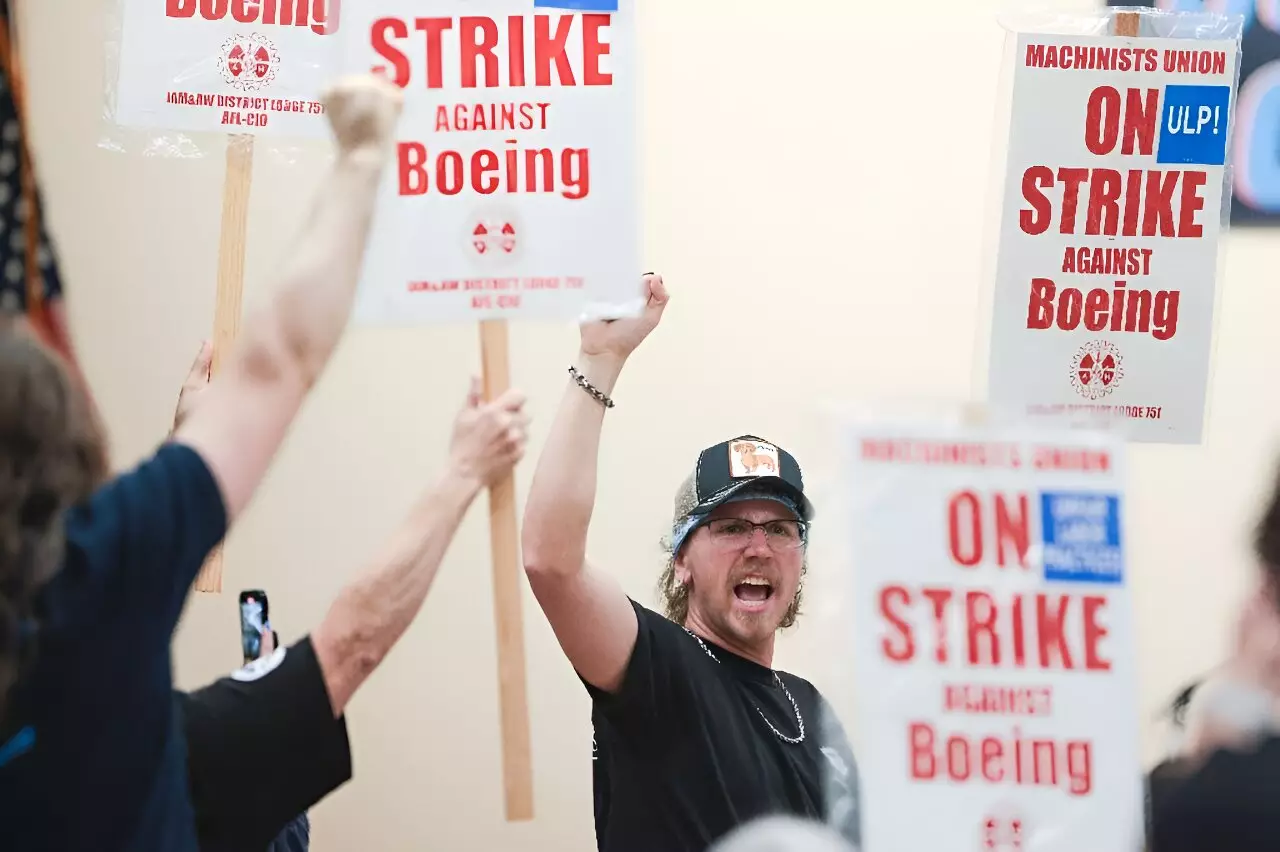The manufacturing landscape in the U.S. is not without its challenges, and a notable example currently unfolding involves Boeing and its striking factory workers. Recently, workers represented by the IAM-District 751 union voted overwhelmingly against a proposal from Boeing, prompting the striking individuals to demand better compensation. The situation escalated to the point of a strike—the first in sixteen years— underscoring significant dissatisfaction among workers regarding their pay and working conditions. The upcoming negotiations between the union and Boeing, mediated by federal officials, represent a crucial moment in this standoff.
The discontent leading to the strike is deeply entrenched. Specifically, hourly workers in the Seattle region rejected a tentative contract offer with an impressive 94.6 percent dissenting vote, initiating a strike with an overwhelming 96 percent support. These statistics reveal a workforce united in its frustration, yearning for more substantial acknowledgment of their contributions. Boeing, dealing with financial setbacks and corporate restructuring under CEO Kelly Ortberg, had proffered a 25 percent wage increase spread over four years, an offer many workers felt fell significantly short. For countless employees, these proposed increases were merely insufficient amidst years of stagnant pay—a stark reminder of the challenges they have faced in the past decade.
IAM-District 751 has made it clear that their demands extend beyond mere numbers; they reflect a desire for respect, dignity, and recognition within their organization. Statements from the union exhibit a deliberate call for solidarity, marking this strike not just as a labor dispute but as a testament to the strength union members feel when rallying together. The power of their collective voice is captured in the rhetoric urging members to make their presence known across the country, sending a message that is meant to resonate with others sharing similar labor grievances.
The repercussions of this strike are significant for Boeing. The closure of two critical assembly plants—the 737 MAX and 777 lines—has compounded the company’s challenges and added delays to their financial recovery efforts. As Boeing looks to rebound, the disruption of operations may exacerbate the strains it is already experiencing. The pathway forward for both the union and the corporation seems riddled with complex challenges, making the resumption of talks a crucial step in determining the future of labor relations at Boeing.
As the negotiations between Boeing and its workers progress, the situation serves as a reminder of the ongoing struggle for fair wages and working conditions in American industries. The resilience demonstrated by union members, alongside the challenges faced by Boeing in a dynamic economic landscape, paints a vivid picture of a critical juncture in labor relations. This strike could impact not only Boeing’s future but also serve as an echo of labor movements across various sectors, showcasing the urgency of equitable treatment for workers nationwide. The upcoming talks are not merely about salary negotiations; they represent the broader implications of worker rights and corporate responsibility in the modern industrial age.


Leave a Reply